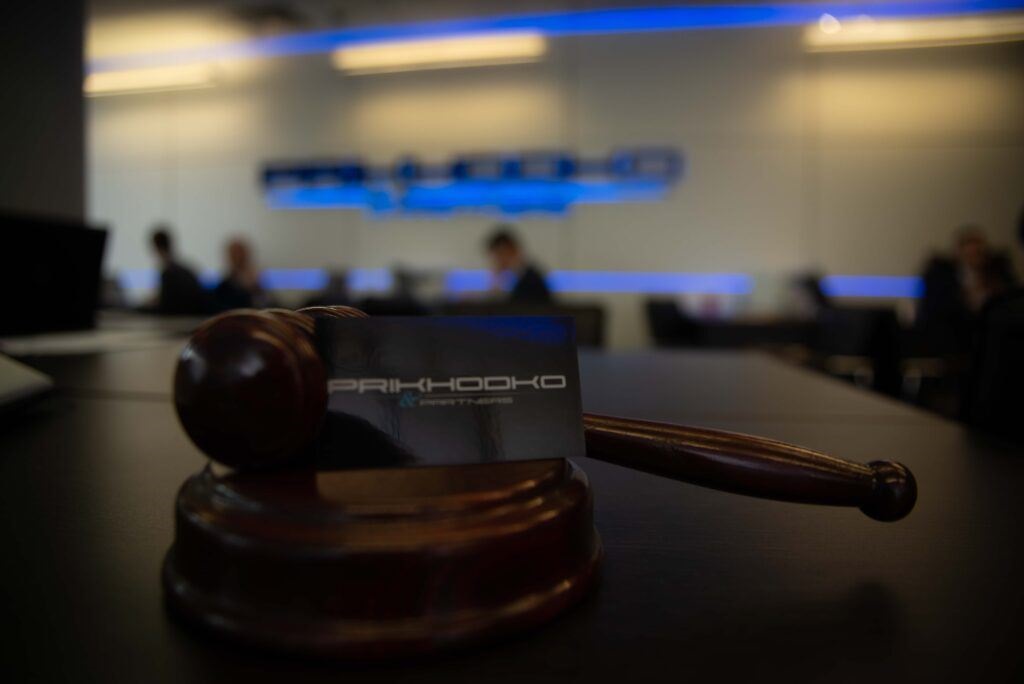
«Our task is to protect your rights and interests. We do not tell "tales" - the client must be honest and aware of the objective reality of the situation.»
SEARCH. WHO CAN SEARCH A PERSON’S PROPERTY?
What does a search mean by law?
The Criminal Procedure Code provides a list of actions that may be carried out by authorized persons of the pre-trial investigation body to achieve the main objectives of criminal proceedings, including to establish the actual circumstances of a criminal offense, identify persons guilty or involved in such a criminal offense, identify and seize that could be an instrument of committing criminal acts, as well as finding things that could be obtained as a result of the crime.
The current Criminal Procedure Code of Ukraine classifies such actions as investigative (search) actions. The list of investigative actions includes a search.
Thus, Article 234 of the CPC of Ukraine defines a search as such an investigative (search) action aimed at finding items that could be instruments of a crime, obtained as a result of a crime or related to the crime. The purpose of the search is also to identify persons or to establish the whereabouts of persons who may be involved in the crime or who are wanted.
A search is one of the most effective investigative actions, as it usually achieves its goals and yields the results for which it is conducted by the investigator or prosecutor.

At the same time, the results of a search are often confiscated by the investigator or prosecutor, including money not related to criminal proceedings, but which is extremely difficult to return later without a criminal lawyer, as the return of property seized during the search is quite difficult. procedure and requires special knowledge.
On what basis can a search be conducted?
In any case, the search interferes with a person's private life, as such an investigative action involves breaking into a person's home or other property. The law, namely Articles 233 and 234 of the CPC of Ukraine, stipulates that a search may be conducted either with the voluntary consent of the owner of the dwelling, premises or other property of the person, or on the basis of a court decision.
The court decision on the basis of which the search is conducted is made by the investigating judge in the form of a decision, the validity of which may not exceed one month from the date of the decision. The specified decision of the investigating judge gives the right to enter the room only once, which must be specified in the decision itself.
That is, the only document that entitles an investigator or prosecutor to enter a person's home or other property against his or her will, ie without his or her voluntary consent, and to conduct a search there, is the decision of the investigating judge.
Who has the right to conduct a search?
The procedure for conducting such an investigative (search) action as a search is regulated by Articles 234 and 235 of the CPC of Ukraine. Thus, in accordance with the provisions of the Criminal Procedure Code, a search may be conducted only by an investigator or prosecutor, the right to conduct which is granted to these persons by a decision of the investigating judge. That is, the search warrant, in addition to complying with the requirements of the law, must also contain information about the persons - the investigator and / or prosecutor who are authorized to do so.
It should be noted that the current criminal procedure law does not provide for the right to conduct searches by other subjects of criminal proceedings, except for the investigator and / or prosecutor, although there are often cases of searches by operatives.
 At the same time, we believe that conducting a search by operatives, even with the appropriate instructions of the investigator, is illegal, and entails recognizing all the results of such a search as inadmissible evidence.
At the same time, we believe that conducting a search by operatives, even with the appropriate instructions of the investigator, is illegal, and entails recognizing all the results of such a search as inadmissible evidence.
A similar legal position is defined by the Joint Chamber of the Criminal Court of Cassation in the decision of December 6, 2021 in case № 663/820/15-k, proceedings № 51-2075 kmo 20. Thus in the said decision the Supreme Court determined: “[ ]… Despite the general rule that the operational units of the National Police, security agencies, the National Anti-Corruption Bureau of Ukraine, the State Bureau of Investigation, the Bureau of Economic Security of Ukraine, the State Border Guard Service of Ukraine, penitentiary institutions and pre-trial detention centers -Executive Service of Ukraine carries out investigative (investigative) actions and covert investigative (investigative) actions in criminal proceedings on the written instructions of the investigator, coroner, prosecutor, and the detective unit, operational and technical unit and the internal control unit of the National Anti-Corruption Bureau of Ukraine - on written instructions or the prosecutor of the Specialized Anti-Corruption Prosecutor's Office raturi (h. 1 st. 41 of the CPC of Ukraine), Part 1 of Art. 236 of the CPC of Ukraine enshrines the rule that the decision on a permit to search the home or other property of a person may be executed by an investigator or prosecutor, no exceptions for operational units are provided. There is no similar norm in any other article of the CPC of Ukraine, which concerns the procedure for conducting investigative (search) actions. "
«[]… Therefore, the systematic analysis of paragraph 3 of Part 2 of Art. 40, art. 235, art. 236 of the CPC of Ukraine allows us to conclude that the implementation of the decision of the investigating judge on permission to search the home or other property of a person is entrusted personally to the investigator or prosecutor and can not be entrusted to the relevant operational units.
«[]… Thus, the general provisions of Art. 223 of the CPC of Ukraine do not indicate the possibility of reassigning the execution of the decision of the investigating judge. Article 235 of the CPC of Ukraine generally deprives the investigating judge of the opportunity to instruct the operational unit or its employee to execute a search warrant. Special rule of Art. 236 of the CPC of Ukraine clearly defines the subjects of execution of the decision, which does not specify the employees of operational units. "
«[]… Systematic interpretation of procedural norms provided for in paragraph 3 of Part 2 of Art. 40, art. 236 of the CPC of Ukraine gives grounds to conclude that the implementation of the decision on a permit to search a home or other property of a person is entrusted to the investigator or prosecutor and can not be entrusted to the relevant operational units.
Therefore, in view of the above, only an investigator and / or prosecutor may, on the basis of a decision of an investigating judge, conduct a search of a person's home or other property.
If your home or other premises are or have been searched, resulting in the seizure or confiscation of your property or money, the lawyers of Prikhodko & Partners Law Firm will provide you with a full range of legal assistance and help return your property.
Calculate the price of assistance:
1 question
Have other lawyers handled your case?
2 question
Are you in Kyiv or Kyiv region?
3 question
Do you need legal assistance urgently?
Other articles on this topic:
call back
during the day




